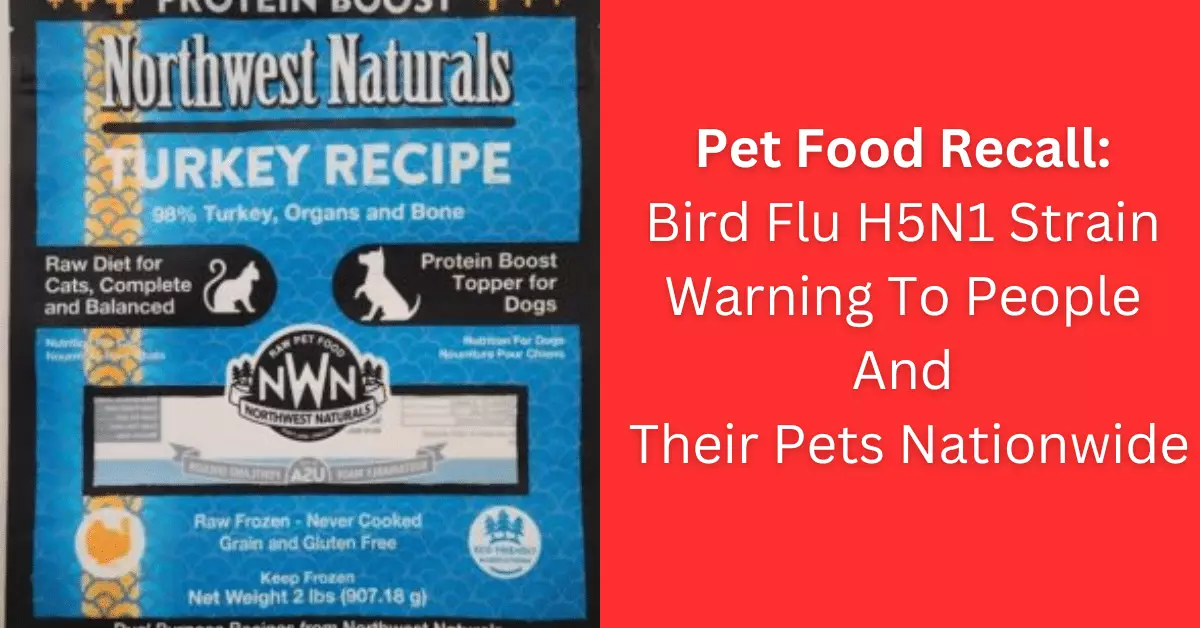Recent alarming news from the Oregon Department of Agriculture (ODA) underscores the potential health hazards lurking in pet food. A specific brand, Northwest Naturals, is at the center of scrutiny after its 2-pound Turkey Recipe raw and frozen pet food was found to be contaminated with the H5N1 strain of Highly Pathogenic Avian Influenza (HPAI). This discovery has raised concerns not only for pet owners but also for public health after a tragic incident involving a cat in Washington County that succumbed to the virus after consuming the tainted food.
The situation escalated following rigorous testing undertaken by the U.S. Department of Agriculture’s (USDA) National Veterinary Services Laboratories and the Oregon Veterinary Diagnostic Laboratory at Oregon State University. Results confirmed that the virus strain from the raw pet food matched genetically with that found in the infected cat. Dr. Ryan Scholz, State Veterinarian at ODA, stated with confidence that the cat, strictly kept indoors, contracted H5N1 exclusively from the Northwest Naturals food, emphasizing the need for heightened awareness around what we feed our pets.
In light of these findings, Northwest Naturals, a Portland, Oregon-based pet food company, has initiated a voluntary recall of the specific 2-pound Feline Turkey Recipe product. The potentially infected products were distributed across multiple states, including Arizona, California, and Florida, and range in expiration dates up to June 2026. Pet owners who possess any of this recalled product are urged to dispose of it immediately and seek refunds through their point of purchase. This situation serves as a crucial reminder for consumers to stay vigilant about pet food safety.
The Oregon Health Authority (OHA) is maintaining close surveillance on individuals who had contact with the infected cat to check for flu-like symptoms. While there have been no confirmed human cases related to this incident and the transmission risk is deemed low, the situation illustrates the complex interplay between animal health and public safety. The OHA has been collaborating with the ODA via a One Health initiative to contend with avian influenza outbreaks and their potential impact on human populations.
To mitigate the risks associated with HPAI and other pathogens, health authorities recommend several preventive measures. Pet owners should refrain from feeding raw or undercooked meat products to their pets. Robust hygienic practices, such as washing hands after handling raw animal products and avoiding contact with sick or deceased wildlife, are essential steps. Furthermore, individuals are advised to report sightings of sick birds to the ODA, ensuring the swift response to potential outbreaks.
The ongoing concerns surrounding the consumption of raw pet food extend beyond H5N1. Other pathogenic threats, such as Salmonella and E. coli, frequently contaminate uncooked meat products. Cooking meat thoroughly significantly reduces these risks, highlighting the importance of advocating for safe food preparation methods. This incident lays bare the danger inherent in raw diets for both pets and their owners, prompting a crucial discussion about the health ramifications associated with such choices.
Though the exclusive connection of HPAI with the pet food has been established in this case, it’s important to note that similar occurrences concerning livestock have been reported in neighboring states. With over 700 confirmed cases across 16 states, vigilance towards HPAI is warranted. Fears surrounding HPAI extend into the dairy industry as well, leading to the ODA’s decision to test milk from all commercial dairies, thereby reinforcing proactive health measures.
The recent findings regarding H5N1 in Northwest Naturals pet food serve as a stark reminder of the potential dangers tied to raw diets for pets. The interconnectedness of animal and human health highlights the imperative for consumers and health officials to remain alert. Educating pet owners on safe feeding practices, monitoring human health closely in cases of animal infections, and maintaining rigorous food safety standards are all critical in preventing future outbreaks. The case illustrates not just a local concern but a broader narrative about the necessity of safeguarding against zoonotic diseases in a world where our pets’ health heavily impacts our own.

